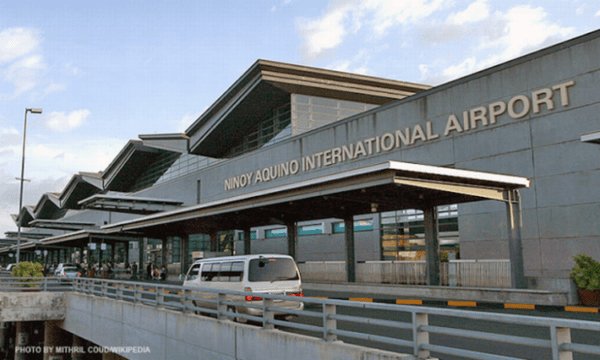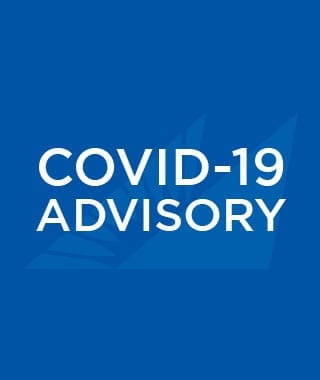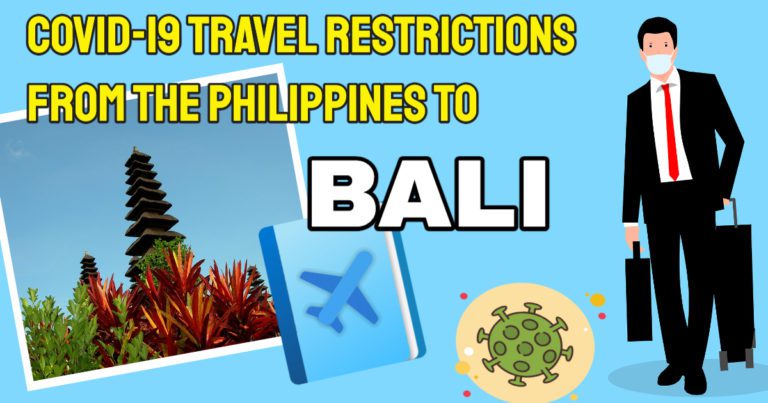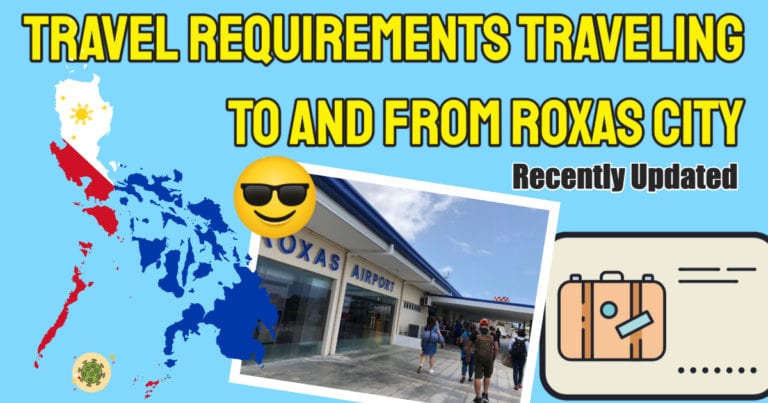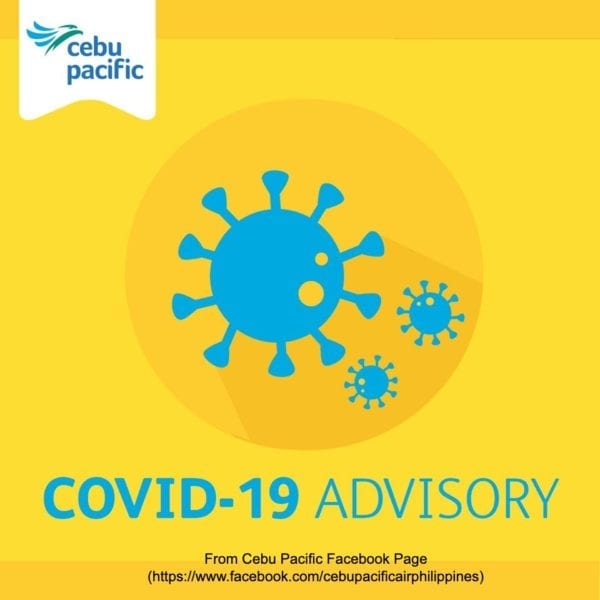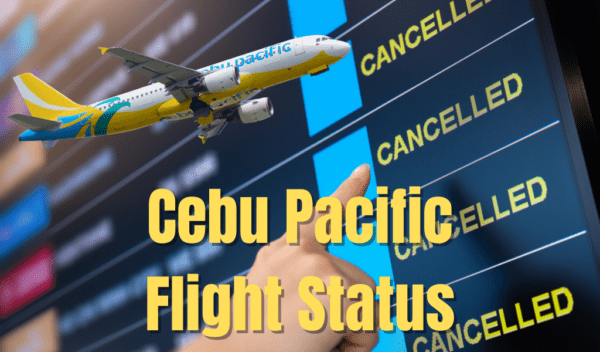IATF Releases ‘Travel Protocols’ for Fully Vaccinated Individuals
IATF News / Update: IATF Releases Travel Protocols for Fully Vaccinated Individuals
Fully vaccinated people need not undergo swab testing if they want to travel within the Philippines. The Inter-Agency Task Force for the Management of Emerging Infectious Diseases (IATF-EID) stated last July 4, 2021.
Governmental Spokesperson Harry Roque stated under the new “procedures” offered under the IATF-EID Resolution No. 124-5, completely vaccinated individuals will just need to present their vaccination card for interzonal travel along with for intrazonal movement.
” A completely vaccinated individual is somebody who has more than or equal to 2 weeks after having gotten the second dose in a 2-dose vaccine; or more than or equal to 2 weeks after having gotten a single-dose vaccine,” Roque, likewise spokesperson of the IATF-EID, said in a declaration.
Mentioning the very exact IATF-EID resolution, Roque said a fully immunized should be administered with vaccines that are consisted of in the Emergency Use Authorization (EUA) List or Compassionate Special Permit (CSP) provided by the Philippine Food and Drug Administration or Emergency Use Listing of the World Health Organization (WHO).
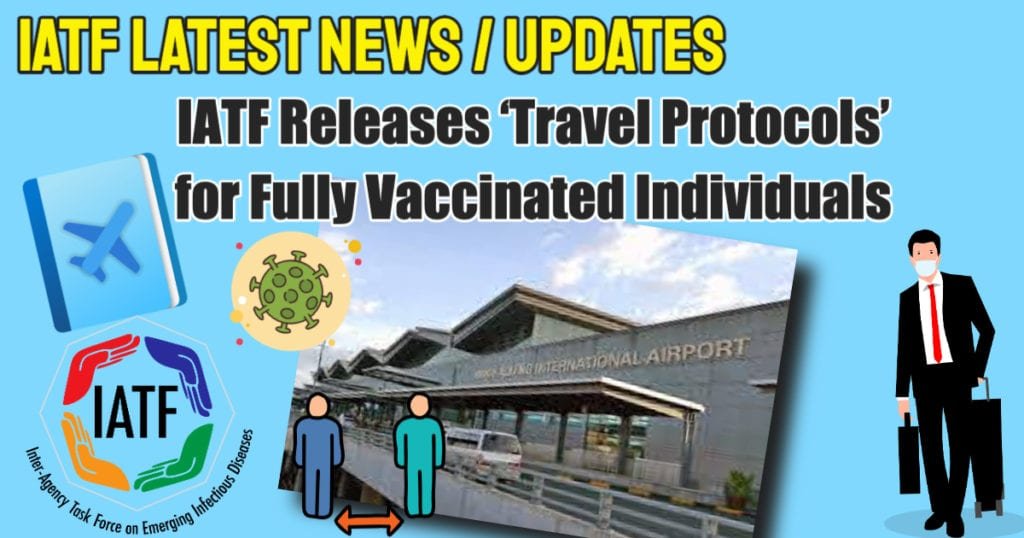
IATF Releases Travel Protocols for Intrazonal movement
Roque said intrazonal motion of fully immunized senior citizens within the areas under the general neighborhood quarantine and customized GCQ imposed to consist of the Covid-19 pandemic “would continue to be allowed.”
” This, nevertheless, undergoes the discussion of a Covid-19 domestic vaccination card appropriately provided by a genuine vaccinating facility, or certificate of quarantine completion revealing the holder’s vaccination status as may be issued by the Bureau of Quarantine,” he stated.
Intrazonal travel is the movement of individuals, items, and services between regions under the same community quarantine classification without transiting through a location positioned under various categories.
IATF Releases Travel Protocols for Interzonal Travel
For interzonal travel allowed under modified “relevant resolutions” of the IATF and provisions of the Omnibus Guidelines on the neighborhood quarantine execution, Roque stated the presentation of vaccination card “will be sufficient alternatives” for any testing requirement which the local government of destination may require.
” This interzonal travel shall similarly apply to fully immunized senior citizens. Likewise, the traveler needs to go through health and direct exposure screening upon arrival in the city government of destination,” Roque said.
Interzonal travel is the motion of individuals, goods, and services across areas positioned under different neighborhood quarantine classifications.
Last week, President Rodrigo Duterte authorized the recommendation to extend GCQ in the National Capital Region Plus (NCR Plus) composed of Metro Manila, Bulacan, Cavite, Laguna, and Rizal until July 15.
The GCQ category will also be imposed in Aklan, Agusan del Norte, Agusan del Sur, Antique, Apayao, Batangas, Baguio City, City of Santiago, Cotabato, Iligan City, Isabela, Nueva Vizcaya, Quirino, Quezon, Guimaras, Bacolod City, Negros Occidental, Capiz, Zamboanga Sibugay, City of Zamboanga, General Santos City, Sultan Kudarat, Sarangani, South Cotabato, Surigao del Norte, and Cotabato City for the entire July.
Cagayan, Bataan, Iloilo City, Lucena City, Naga City, Negros Oriental, Puerto Princesa, Iloilo, Zamboanga del Norte, Zamboanga del Sur, Cagayan de Oro City, the entire Davao area, Butuan City, Dinagat Islands, and Surigao del Sur are under stricter modified boosted community quarantine until July 15.
The remainder of the nation will remain under MGCQ for another month.
IATF Resolution No. 124-B also mentioned that in circumstances when fully immunized people are close contacts of possible and confirmed Covid-19 cases, they may go through a reduced 7-day quarantine duration just if they stay asymptomatic throughout the seven days.
“In case there is a requirement for [reverse transcription-polymerase chain reaction] RT-PCR screening, such may be conducted not earlier than the fifth day after the date of the last direct exposure,” the resolution read.
No screening and quarantine will be required for the close contacts who might have been traced beyond the seventh day from the last exposure and who stayed asymptomatic.
As soon as the RT-PCR test yields a positive outcome or the specific becomes symptomatic, proposed testing and isolation protocols will be followed.
Source: Philippines News Agency (PNA)

